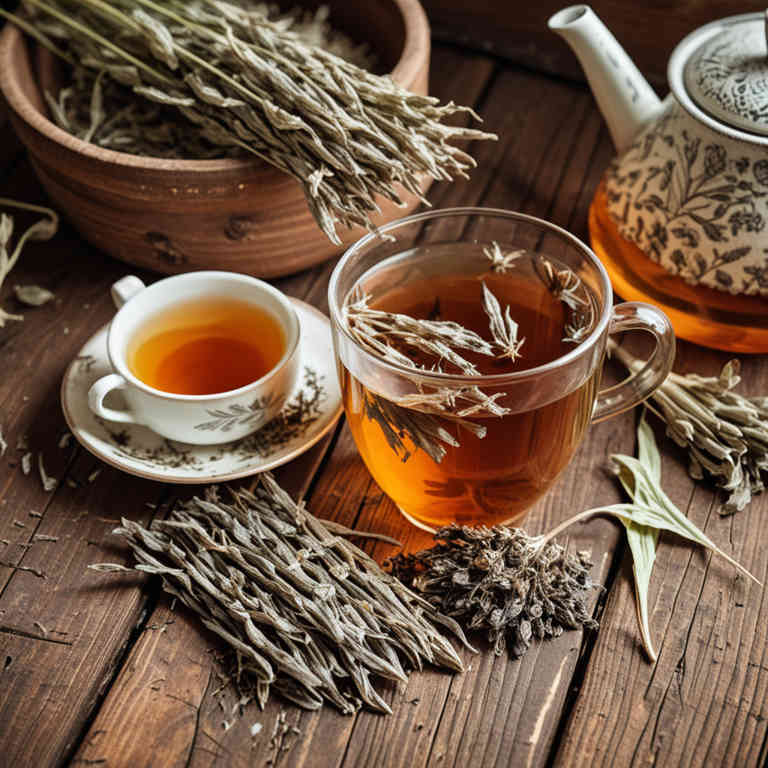Plantago lanceolata tea for medicinal use

Plantago lanceolata tea is a herbal preparation made from the leaves and seeds of the greater plantain plant, known for its soothing and healing properties.
It is commonly used in herbalism to treat respiratory issues, such as coughs and bronchitis, due to its expectorant and anti-inflammatory effects. The tea is also valued for its ability to support digestive health and promote wound healing. It is often consumed as a mild tonic to ease inflammation and soothe irritated tissues in the throat and lungs.
This versatile herb is a staple in traditional medicine for its gentle yet effective therapeutic benefits.
Uses
Plantago lanceolata tea has been used to treat a variety of ailments for centuries, with roots in traditional herbal medicine across Europe and Asia.
Historically, it was valued for its soothing properties, often used to alleviate respiratory issues, digestive problems, and skin irritations. In traditional practices, the tea was also applied topically to wounds and used as a remedy for inflammation and coughs. Modern usage continues to include its role in supporting respiratory health and as a mild diuretic, with some studies suggesting potential anti-inflammatory and antioxidant benefits.
Today, it remains a popular natural remedy, often found in herbal stores and used for its calming and healing effects.
Benefits
Plantago lanceolata tea has health benefits such as aiding digestion, reducing inflammation, and supporting respiratory health.
It is often used to soothe sore throats and alleviate symptoms of coughs and colds due to its expectorant properties. The tea may also help in reducing swelling and promoting healing of minor wounds because of its high mucilage content. It is traditionally used to relieve symptoms of irritable bowel syndrome and improve overall gut health.
Additionally, it may contribute to detoxification by supporting liver function and helping to remove toxins from the body.
Constituents
Plantago lanceolata tea active constituents include mucilage, flavonoids, tannins, and essential oils.
These compounds contribute to the tea's anti-inflammatory, soothing, and digestive properties. Mucilage helps coat and protect the mucous membranes, making it beneficial for respiratory and digestive tract health. Flavonoids act as antioxidants, supporting immune function and reducing oxidative stress.
Tannins provide astringent effects, which can help with minor bleeding and diarrhea.
Preparation
To make Plantago lanceolata tea, begin by gathering fresh or dried Plantago lanceolata leaves, also known as broadleaf plantain.
Rinse the leaves thoroughly and then place them in a heat-resistant container. Pour boiling water over the leaves and let the mixture steep for 10 to 15 minutes. Strain the liquid through a fine mesh strainer or cheesecloth to remove the plant material.
Enjoy the tea warm, and consider adding a small amount of honey or lemon for flavor, though it is often consumed plain.
Side Effects
Plantago lanceolata tea may lead to gastrointestinal discomfort, including nausea, vomiting, and diarrhea, especially when consumed in high doses.
It can also cause allergic reactions in individuals sensitive to plants in the Plantaginaceae family. The tea may interact with certain medications, such as diuretics or blood thinners, potentially increasing the risk of adverse effects. Long-term use might lead to electrolyte imbalances due to its mild diuretic properties.
It is important to consult a healthcare professional before using this herbal preparation, particularly for individuals with pre-existing medical conditions.